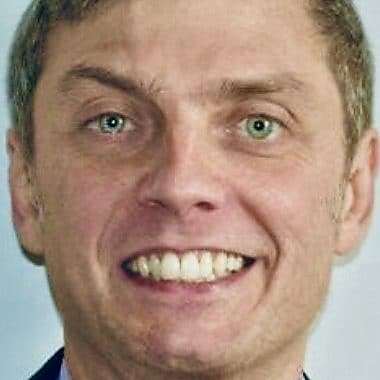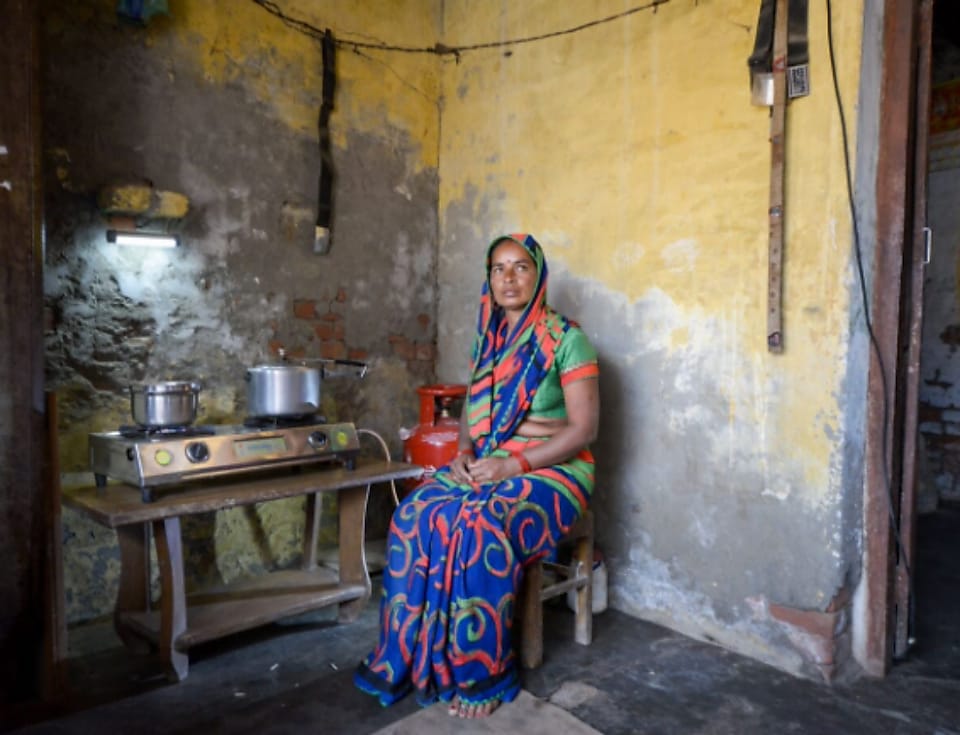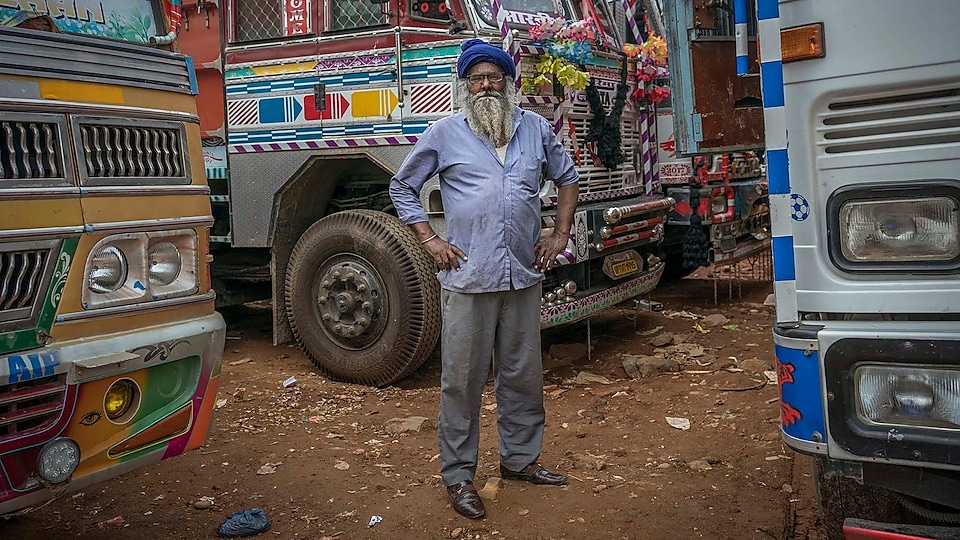
Doctor in a locked-down community
Near the north-west coast of India, a doctor has been working to help those finding life especially hard during the COVID-19 lockdown. This is his story.
By Adam Lusher on May 27, 2020
At 9am, Dr Prakash Maradia starts to receive the first patients of the day.
The temperature is already 28 degrees Celsius (28°C). By midday, it will be nudging 40°C.
Dr Maradia, a married father-of-two, gave up his thriving private practice to spend what he expects to be the last stage of his career among India’s less privileged inhabitants.
Today, he serves the community of Hazira in Gujarat, India.
His base, the Hazira Community Medical Centre, is funded by Shell and operated by the non-governmental organisation (NGO) Kantha Vistar Satatyapurna Vikas Samity (KVSVS).
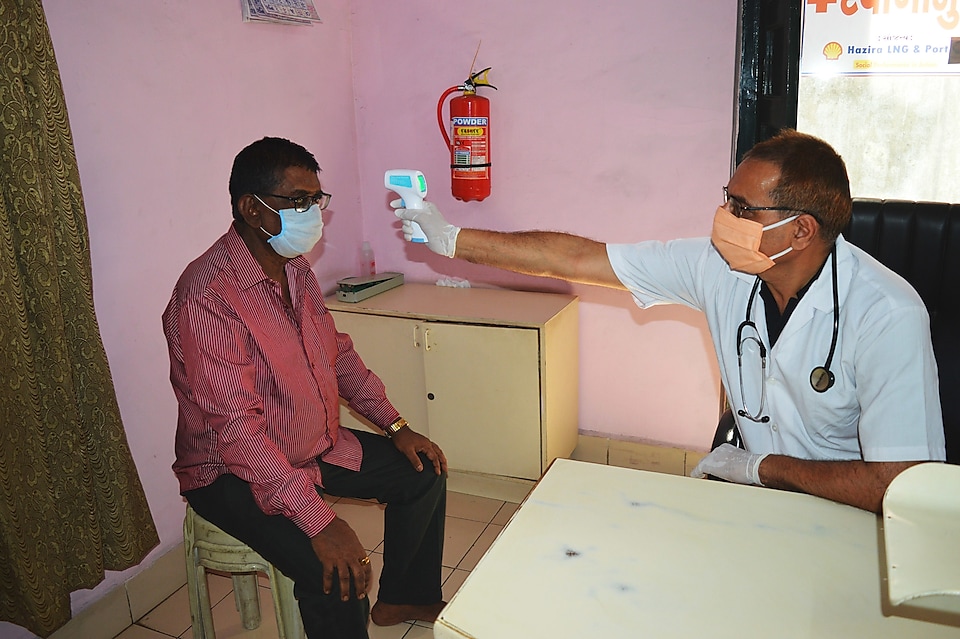
His patients are drawn from Hazira’s population of 5,000 permanent residents and around 10,000 migrants who came seeking work: from Maharashtra, Uttar Pradesh, even Bihar, on the opposite side of India.
They are surrounded by industrial sites, including one operated by Shell Energy India, formerly known as Hazira LNG, a cargo port, liquefied natural gas (LNG) terminal and regasification complex.
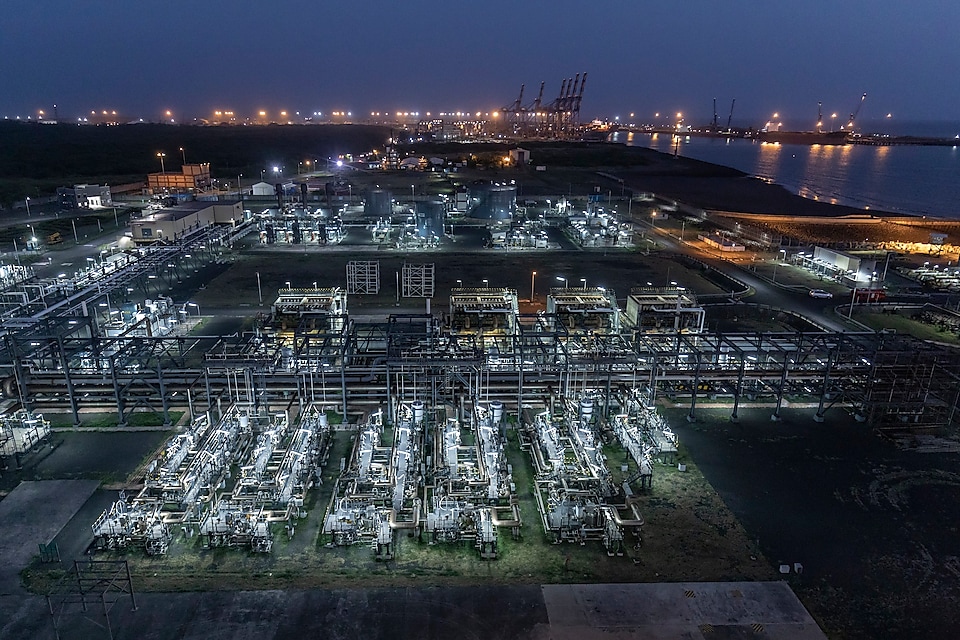
But India’s COVID-19 lockdown has left many businesses operating with only skeleton staffs, if at all. Many Hazira residents had jobs that required them to be on-site and could not be done from home. They found themselves out of work.
A small number of those living in Hazira have jobs at Shell’s port and LNG complex. Even if they are not working during the lockdown, they are all still receiving their salaries – across the country Shell has temporarily reduced staffing levels, while seeking to protect the incomes of its India-based employees and contractors.
Helping the people of Hazira
Many people in Hazira, however, have been less protected.
“So many are earning nothing,” says Dr Maradia, “It is very difficult for them even to afford food.”
Across India, Shell has distributed around 35,000 packs containing food and groceries. More than 2,500 went to the most vulnerable people in Hazira and nearby settlements.
Shell, KVSVS and Dr Maradia, in consultation with Hazira’s local council, waived the medical centre’s small fee of 30 rupees (40 US cents) for a visit to the doctor and a course of medicines. Shell will cover the shortfall.
“When you are struggling to manage for food,” says Dr Maradia, “Having to spend even a small amount on your health would be a big burden.”
The move was appreciated.
“By not charging anything when people are struggling,” says council member Jayanti Khalasi, “The medical centre is doing a very good job for the people of Hazira.”
Many in the community are still having a tough time. Although India’s lockdown was partially eased on May 18, industries around Hazira continue to operate with limited staff numbers to follow social distancing guidelines.
Health care and clean water
Shell’s funding of the medical centre covers the pay of Dr Maradia and his team: a nurse, two locally recruited receptionists and a housekeeper.
Opened in 2003, the medical centre gave people earning around 8,000-15,000 rupees ($105-$200) a month access to proper primary health care at affordable prices.
The 30-rupee fee covered operating expenses including the cost of medicines. It also ensured residents had a stake in the medical centre and felt able to have a say in how it was run.
Residents also benefit from a water treatment plant, installed with the financial and technical assistance of Shell. They can buy 20 litres of clean, drinkable water for four rupees (five cents).
“We now see far fewer cases of water-borne diseases,” says Dr Maradia.
Reassurance and advice
As of May 28, no confirmed cases of COVID-19 had occurred in the Hazira community.
“Patients still need reassurance,” says Dr Maradia. “I also advise about washing with soap and water, avoiding coughing over people, and social distancing.”
Dr Maradia and his team have treated many hundreds of patients since the nationwide lockdown began on March 25. They have provided medicines for common illnesses, and referred anyone with something more serious to the hospital in the city of Surat, around 30 kilometres away.
Today, as the heat intensifies, they report another small victory.
“It was a woman who works as a cobbler,” says Dr Maradia. “She and her husband support two children on a very low income. On Saturday, she had severe vomiting and dizziness. Today, after taking the medicines I gave her, she is fine, and very happy.”
He does not regret the switch from private practice.
“I like my patients very much,” he says. “They are good people.”
